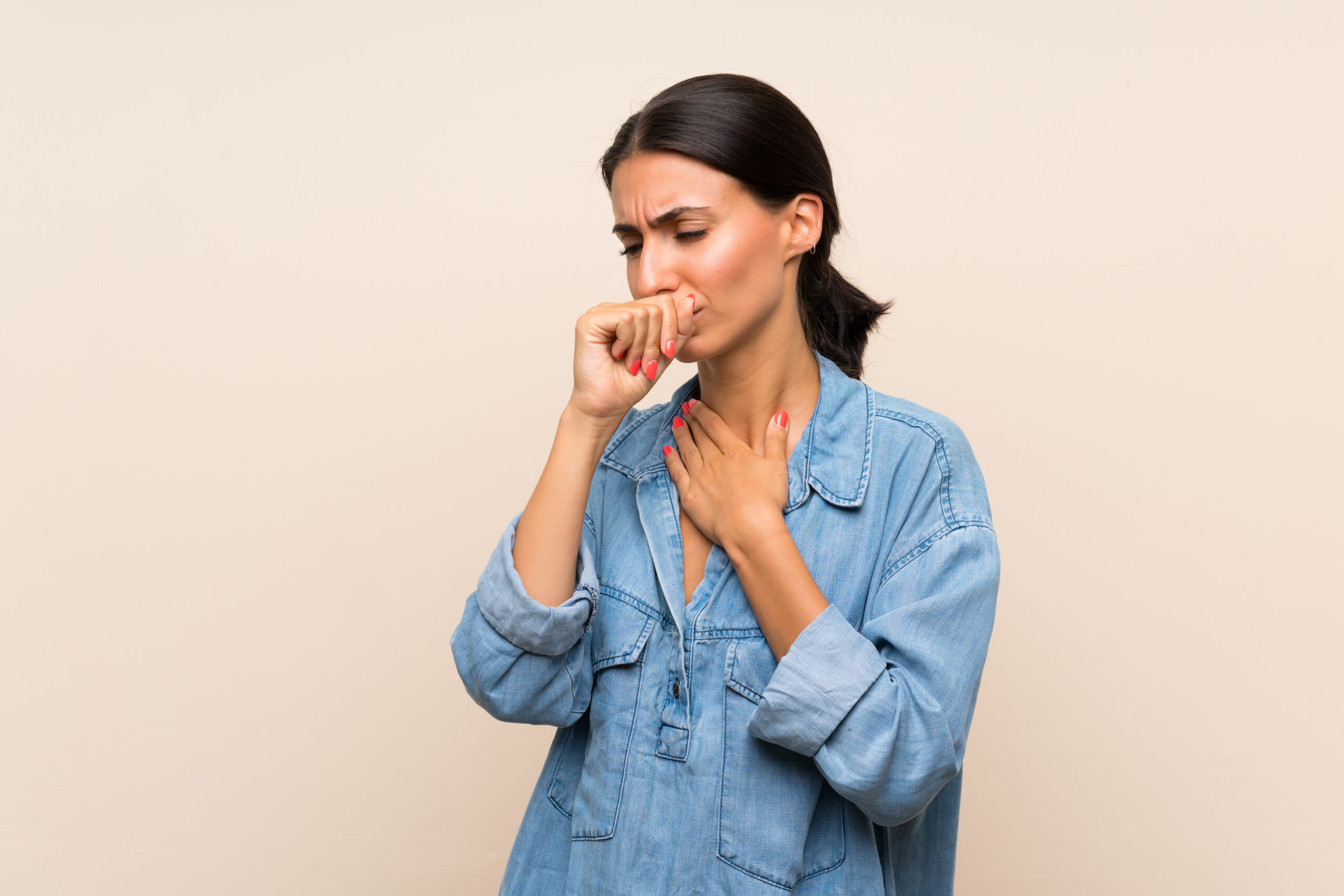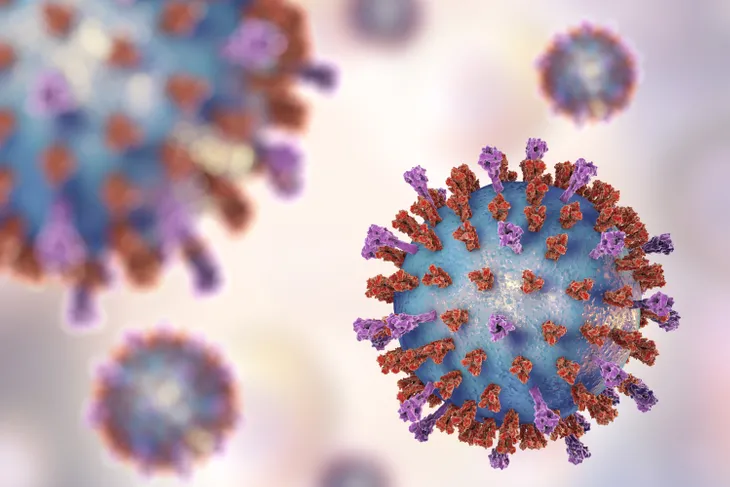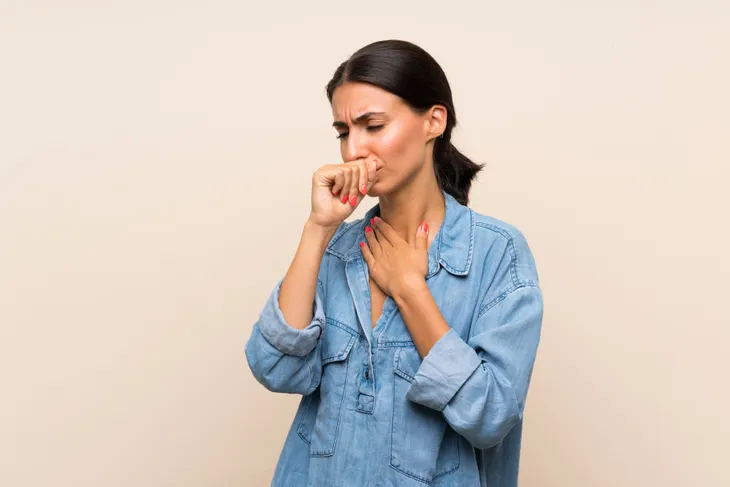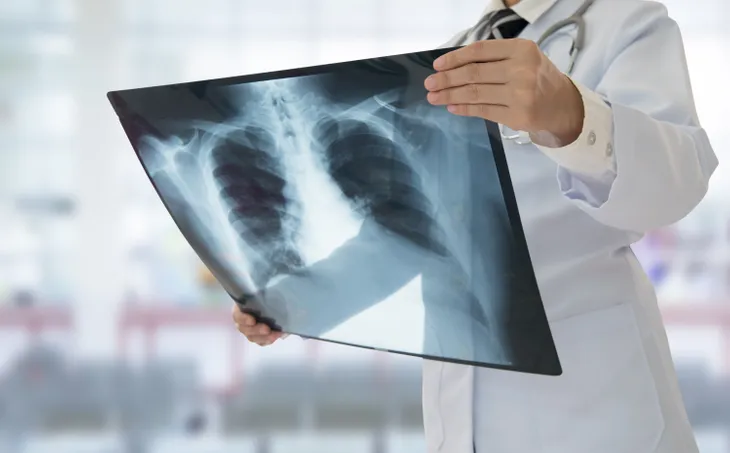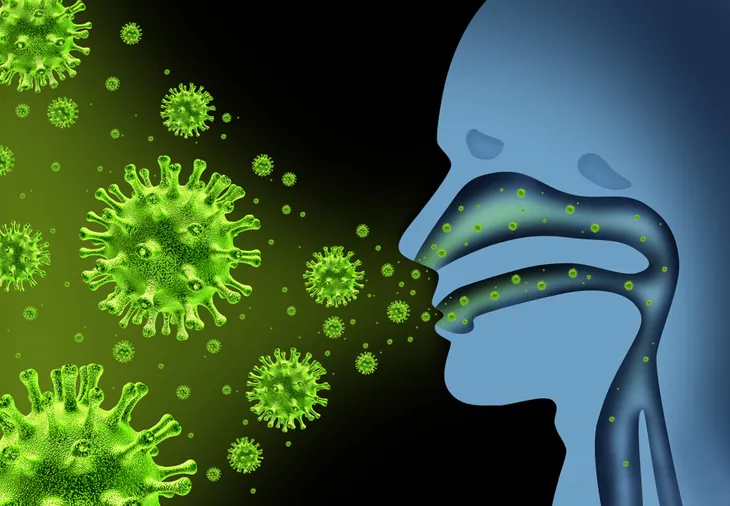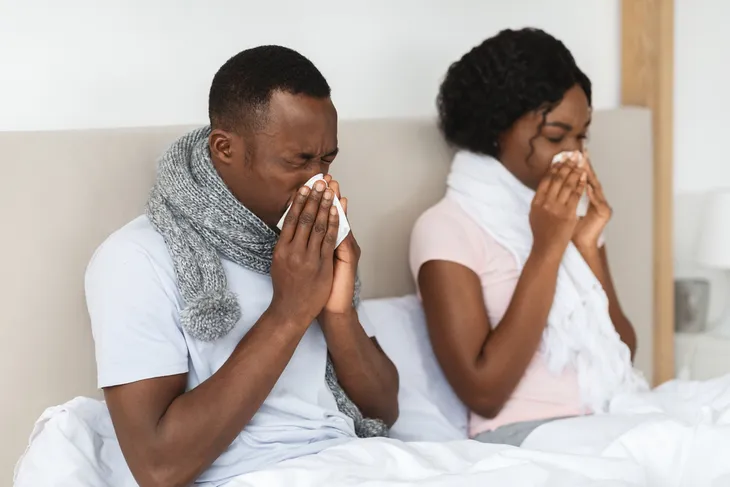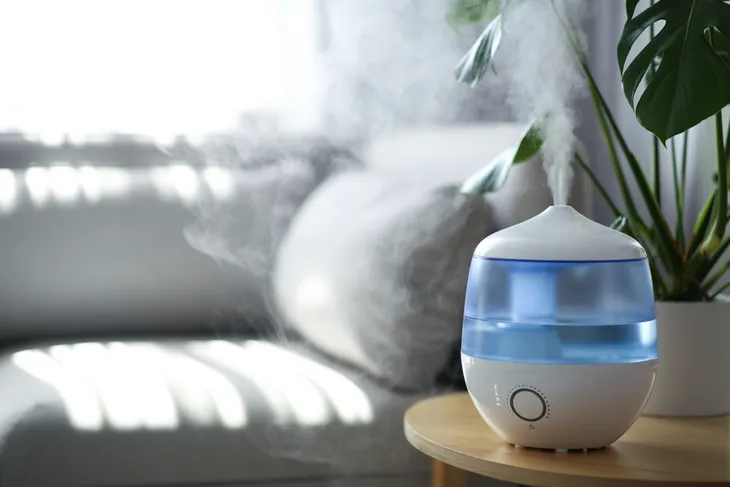- Respiratory syncytial virus (RSV) is a common respiratory virus.
- It’s so common that most children are infected before they’re 2-years old but reinfections can happen throughout life.
- The infection is typically mild in healthy people but it can also be life-threatening for others.
Every fall, cases of RSV infections surge across the country. In fact, it’s so common that the Centers for Disease Control and Prevention (CDC) says virtually every child will get an RSV infection before they’re 2-years old. But reinfections throughout life are also possible.
An RSV infection is usually mild in healthy people but it can also be life-threatening for others. We also know children are often susceptible to the virus but can adults get an RSV infection too? We’ll answer that and more in this article.
What Is RSV?
Respiratory syncytial virus (RSV) is a common respiratory virus. The Mayo Clinic explains that the virus causes infections of the lungs and respiratory tract, which can result in cold-like symptoms.
While RSV can be mild for some people, it can also be more severe in others. Some people are at a greater risk of complications too, such as very young infants. So, it’s important to know the warning signs that may indicate RSV is an emergency and requires immediate medical attention.
Can Adults Get RSV?
Cases of RSV infections are very common in children but adults are not immune to the virus. The CDC explains that though, most people are infected by RSV first when they’re a child, repeat infections throughout life are also possible. So yes, Adults can get infected with RSV too.
The good news is, most healthy adults will experience mild cold-like symptoms and the infection will likely resolve on its own within a week or two. However, RSV can be more serious for seniors and adults with certain medical conditions or compromised immune systems.
When Is Peak Season for RSV?
According to Healthline, “RSV does exhibit seasonal trends.” This means that it peaks at certain times of the year. Cases of RSV typically start occurring in the fall in the United States (and other places with similar climates).
The virus also tends to circulate throughout the winter and into spring. However, the source notes that the exact timing of the beginning, peak, and end of the RSV season can vary from year to year.
Who’s at Risk for Complications?
As mentioned, RSV is often mild in healthy adults but it can be more severe for some people, especially seniors. The CDC states that roughly 60,000 to 120,000 older adults in the U.S. are hospitalized due to RSV infections. And unfortunately, the source also notes roughly 6,000 to 10,000 pass away yearly due to the infection.
The source notes that the adults who are at the highest risk for severe RSV infection include:
- Seniors, particularly those 65-years and older
- Adults with chronic heart or lung disease
- Adults with a weakened immune system
Common Symptoms of RSV
Once you’ve been infected with the virus, symptoms typically develop within 4- to 6-days. An RSV infection can often be mistaken for the common cold or flu because symptoms can be similar.
A mild infection may cause a runny nose, nasal congestion, or a sore throat. Fever, fatigue, headache, and coughing are also common. Healthline says the symptoms typically resolve within 7- to 10-days but a cough may linger for a few weeks.
 Shutterstock/Prostock-studio
Shutterstock/Prostock-studioHealth Complications of Severe RSV in Adults
As mentioned, RSV infection can be more severe in older adults and adults with weakened immune systems or some medical conditions. One potential complication of RSV is bronchiolitis. Healthline explains that bronchiolitis causes inflammation of the small airways in the lung which can “block the flow of oxygen.”
Another potential complication is pneumonia. In severe cases, an RSV infection may cause pneumonia, which causes inflammation of the small air sacs in the lung. The source says this can make it hard to breathe. Furthermore, an RSV infection may also worsen symptoms of underlying conditions such as asthma, COPD, or congestive heart failure, which can be severe. Some of these complications may result in hospitalization.
How Do Adults Get RSV?
RSV is a very contagious virus, meaning it spreads from person to person. According to Healthline, someone who has an RSV infection can usually spread the virus for 3- to 6-days.
Like other respiratory infections, RSV is spread through respiratory droplets from an infected person that sneezes or coughs. Once you come into contact with the virus, the droplets can enter your body via the nose, mouth, or eyes. The source notes it can also spread through direct contact (such as kissing). But that’s not all.
RSV can also spread by touching infected objects and surfaces. The source notes that the virus can survive on surfaces for several hours. If you touch the object and then touch your face or mouth, you may develop an infection.
What to Do if You Get RSV
Since RSV is very contagious, the first thing you should do when you get sick is to stay home. Staying home from work, school, and other public areas can help protect others from catching your illness.
The CDC also emphasizes that you mustn’t interact with people who are at risk for severe RSV infection. This includes premature infants, children under 2-years old, seniors, and anyone with a weakened immune system. If it’s not possible, the source says to do what you can to prevent spreading the virus, such as washing your hands before interacting and consider wearing a mask.
When to See a Doctor
RSV infections are often mild for most healthy adults and they typically resolve on their own within a week or two. That said, it is important to know the signs that you have a more severe infection and seek medical care if they develop.
The CDC says if you’re having difficulty breathing, you should seek emergency care. Dehydration is another severe symptom and requires immediate medical attention. You should also see your doctor if your symptoms don’t begin improving within 7-days.
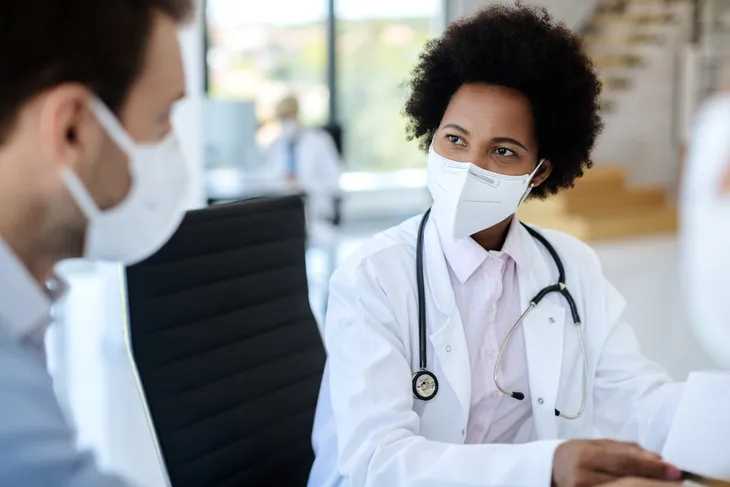 Drazen Zigic/Shutterstock
Drazen Zigic/ShutterstockHow to Treat RSV
There is no specific treatment for an RSV infection. Also, because it’s a viral infection, antibiotics won’t effectively treat it as they’re only effective for bacterial infections.
If the infection is severe, doctors may prescribe medication to open the airways, which helps improve your breathing. On the other hand, if your infection is mild, symptoms can typically be managed at home. Let’s take a look at a few at-home remedies next.
At-Home Remedies for RSV
The Mayo Clinic points out that you won’t be able to shorten the length of the infection, but there are steps you can take to help relieve some of the symptoms. For starters, the source suggests creating moist air to help you breathe better. This can be achieved by running a cool-mist humidifier or vaporizer.
It’s also important to drink plenty of fluids to help prevent dehydration. Water, soup, broth, and ice pops are all great options to help you stay hydrated. Over-the-counter pain relievers may also help reduce symptoms but always check in with your doctor first, especially if you’re currently taking medication. Finally, the source says you should also stay away from cigarette smoke as secondhand smoke can aggravate symptoms.
How Can Adults Prevent RSV?
You can’t always prevent infections but there are steps you can take to help reduce your risk. The CDC recommends that adults 60 years old and older can receive the RSV vaccine. The CDC says another way you can help prevent an RSV infection is by washing your hands often. To effectively wash your hands you should lather them with soap and water for at least 20-seconds. If you’re in a pinch, use hand sanitizer.
You should also avoid touching your face and close contact with sick people, and disinfect frequently touched surfaces and objects (such as counters, doorknobs, toys, and mobile devices). Finally, if you’re sick, cough and sneeze into a tissue or your upper shirt sleeve to protect others. Always throw the tissue in the garbage afterward.
